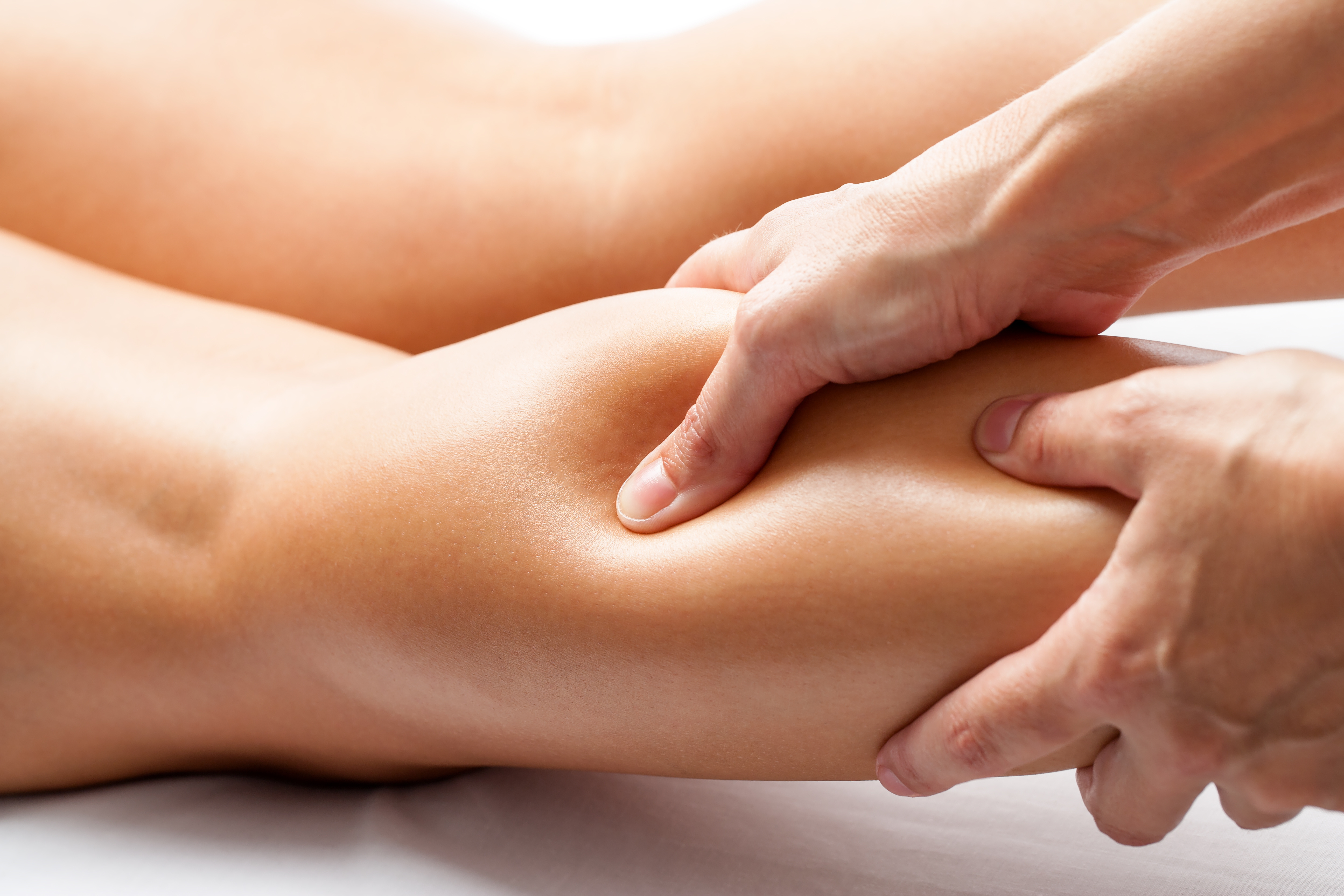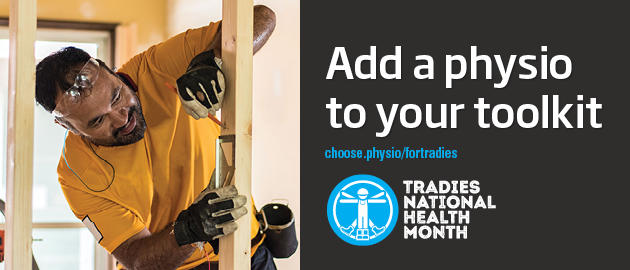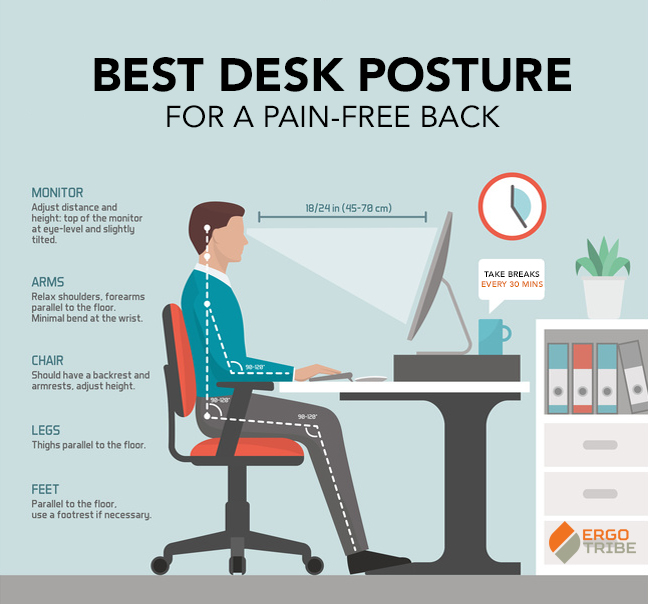Confined to Run – running during Coronavirus
Over the last few weeks one positive that has surprised us in the clinic is the number of people seeking our expertise for exercise related injuries. It seems that half of North Sydney has managed to dust of their running shoes and hit the pleasantly empty streets.
With gyms closed, CEO’s working from home and a temporary hold on the school run, time has been created for the most important thing – the self. New work out routines and self-imposed running schedules are abundant.
With all of this in mind I thought it would be a good idea to provide some encouragement and education on how to prepare for your run, progress as a runner and how to keep version 2.0 of yourself running, exercising and meditating when the virus is nothing but a distant memory.
Preparation:
Our clients are so keen to lace up the runners and race at the door that many of them are missing the most important part of the run. The old phrase ‘fail to prepare and prepare to fail’ rings true.
School PE lessons would have us take a few laps around the oval and then some good old-fashioned hamstring stretch and this is exactly that – old fashioned.
Instead ask your self – how’s my butt? The glut muscles are the powerhouses of the body. Not only do they keep our pelvis aligned, contribute to single leg balance and knee alignment when running they also serve to drive us forwards and thereby taking the stress of those sore calves you are plagued with!
The series of exercises below should be completed prior to starting your run. They can also work, as a set of exercises to be used when taking a mini-break from your desk as those hours spent sitting will have your backside snoozing.
1. Single leg bridge
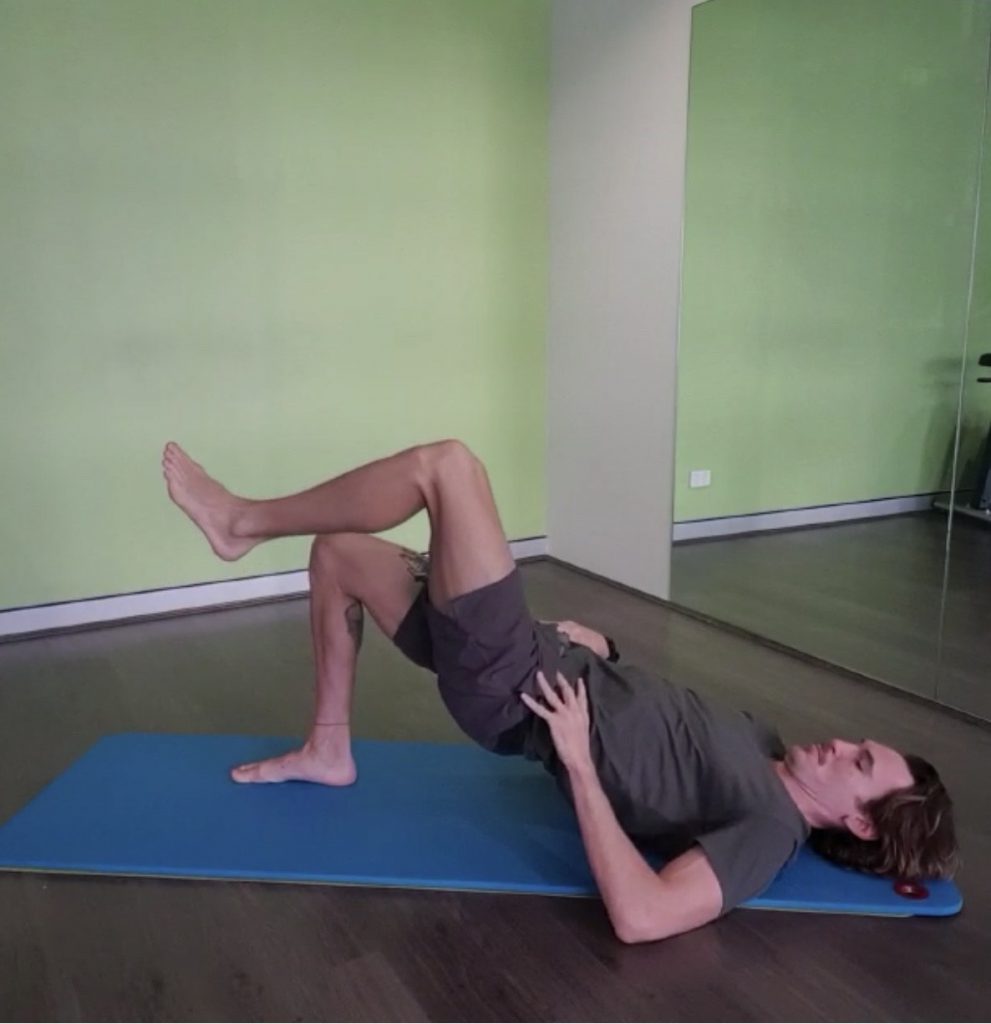
2. Lying hip abduction (With or without resistance band)
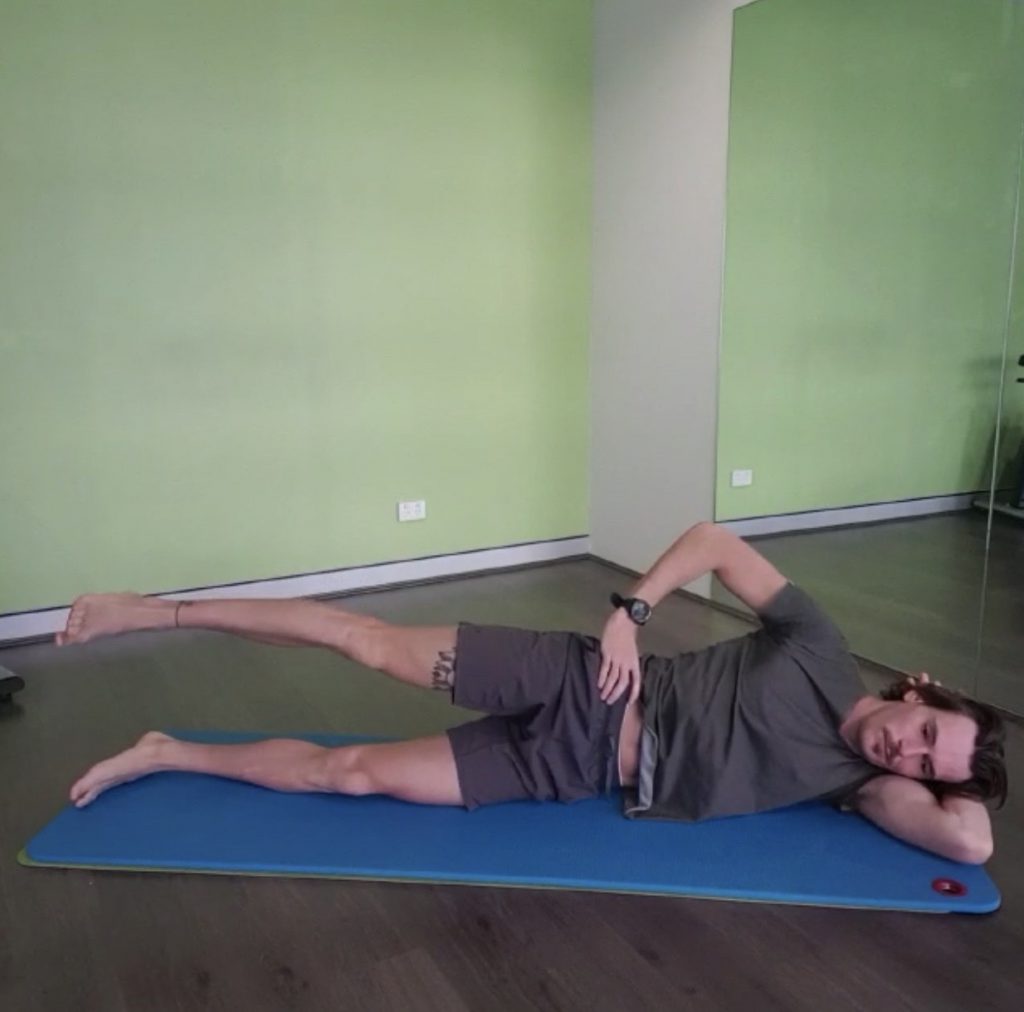
3. Single leg dead lift.
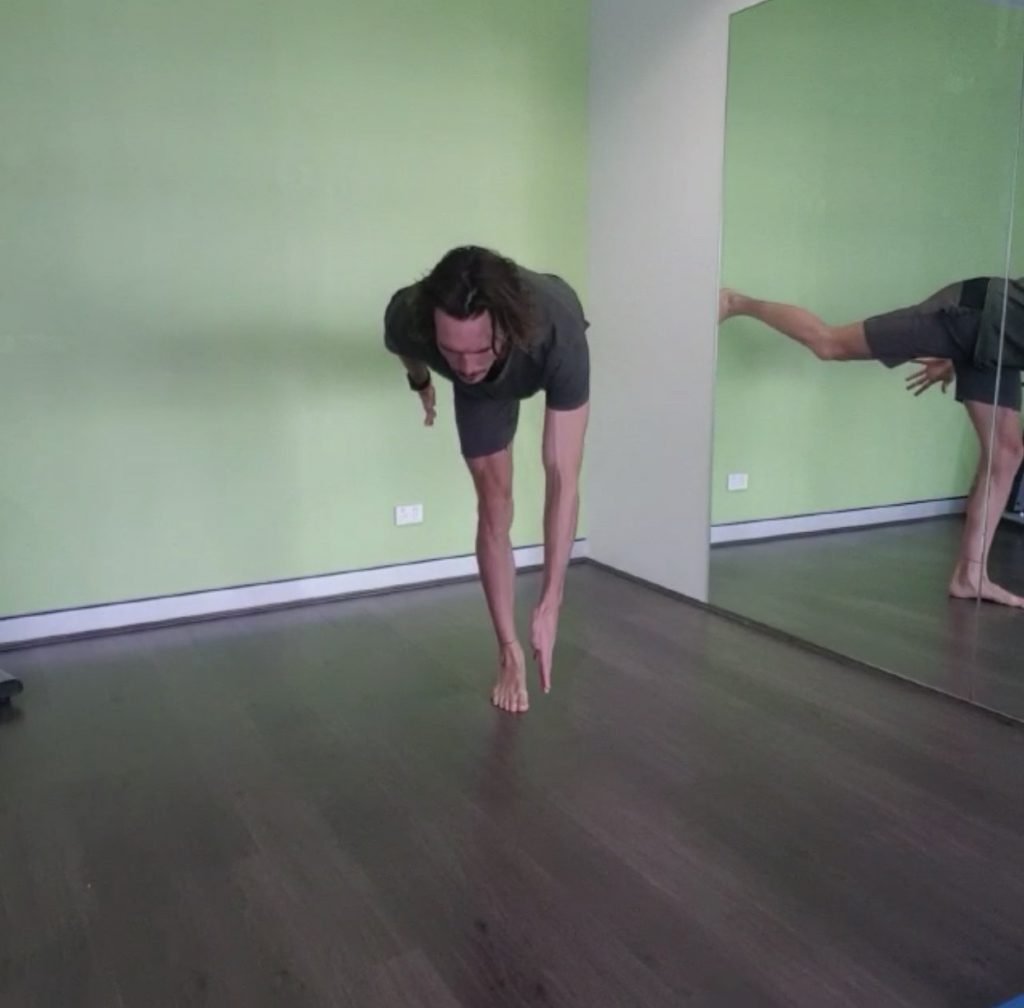
Bonus point:
Before you put on your running shoes spend 2 minutes rolling the base of your foot with a lacrosse/spiky ball. This simple movement will re-awaken your constricted feet and begin to mobilise the 26 bones, 33 joints and 100 tendons, muscles and ligaments.
How to increase running distance:
If you’re completely new to running then the Couch to 5KM is the most commonly used program that has people up and moving in no time. (https://www.nhs.uk/live-well/exercise/couch-to-5k-week-by-week/).
If you’re already pounding through 5km and, the proverbial carrot is not getting any closer, then keep reading. Every time we increase our running routine whether its distance, time or speed we also increase our likely hood of picking up an injury. But good news, there is ways to prevent this.
1. Increase running distance by no more than 10% each week. So if you’re running 10km this week – next week you can do 11km.
2. Ensure you are wearing well-fitted running shoes that are suitable for your running style. Head over to Pace Athletic (https://paceathletic.com/) for a running gait analysis and a pair of runners made for you.
3. Cool down – this is more important than most people realise. Aim to complete a cool down that is 10% of you’re workout – add an additional 1km to your workout at a slower pace gradually reducing to a walk.
4. Implement a preventative programme including, stretching, Pilates, good nutrition, hydration and adequate sleep.
Upgrading version 2.0
Now you’re running at version 2.0 its time to keep upgrading. It is commonly thought it takes 66days to form a new habit. The length of time public health restrictions have been going on for means we are almost there! When events are up and running (excuse the pun) and we can start to be more human by gathering outside there is a few ways you can push your exercise to new heights.
1. Join a running club
- Pace athletic offers fun, inclusive and beneficial running clubs (https://paceathletic.com/pages/run-club).
- Meet-up is a great place to network with other runners and find local running clubs (https://www.meetup.com/en-AU/topics/running/au/sydney/)
2. Park run – The world’s biggest running event. A free, weekly 5km in open spaces and parks around the world. Park run offers a positive, welcoming experience. Feel free to walk, jog, run, volunteer or spectate. (https://www.parkrun.com.au/)
3. Sign up to an event – This single most effective way to give yourself a purpose. 5km, half marathon, mud-run or sponsored walk. Put it on the calendar and keep working!
Now you have managed to find time for all your new healthy habits – exercising, connecting with food in your kitchen, listening to and engaging as a family – I hope that life doesn’t return to the way it was.


